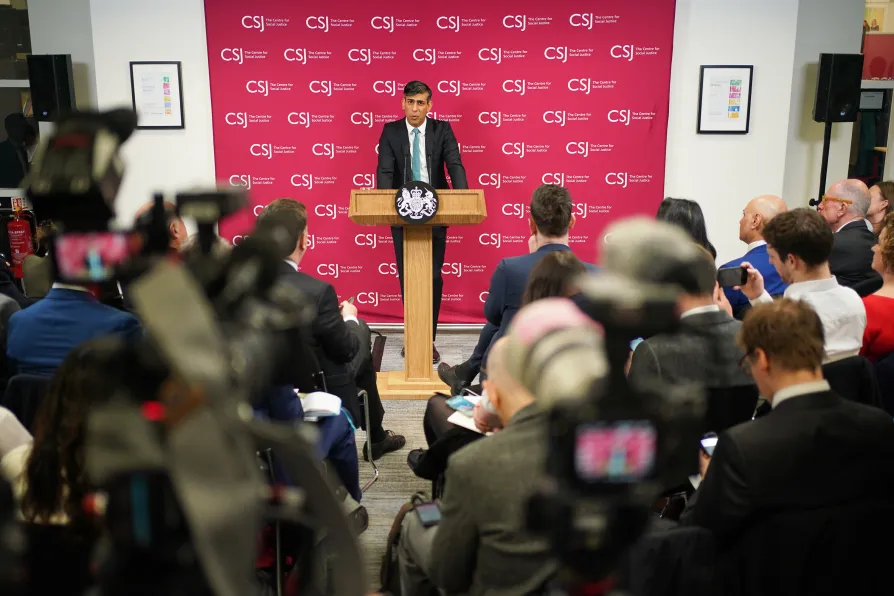Sunak launches ‘full-on assault’ on disabled people
PM announces major plans to impose curbs on benefits

 Prime Minister Rishi Sunak giving his speech in central London on welfare reform, April 19, 2024
Prime Minister Rishi Sunak giving his speech in central London on welfare reform, April 19, 2024
RISHI SUNAK was accused of launching a “full-on assault” on disabled people today after he announced major plans to impose fresh curbs on benefits.
The Prime Minister said an expected rise in benefits spending is “not sustainable” and vowed to “significantly reform” the system.
He announced a new consultation on personal independent payment (PIP), a non means-tested benefit that helps with extra costs caused by long-term disability or ill health.
Similar stories

By making Personal Independence Payments harder to access, Labour is creating another barrier for those already struggling with soaring care costs, workplace discrimination and prejudiced employers, argues RUTH HUNT












